Big Close Up-
Big close ups show the artists’
face from their chin to forehead. This shot creates a sense of intimacy as this
is a lot closer than you would usually be to another person.
Close Up- Here a close up is used to focus on the artists’
face. This helps to convey emotion.

Medium Close Up- A
medium close up shows the shoulders and head, focussing on the artist
performing but with less of an emotional connection than a close up.
Mid Shot- The artist takes
up approximately 50% of the shot, so while the focus is on her, the background
and subject are balanced.
 Medium Long Shot- This
shot still focus on the artist, while also giving a sense of location. Here, in
front of a white wall, the artists’ bright orange jacket allows her to really
stand out. However by showing the wall high above her, Foxes appears rather
small.
Medium Long Shot- This
shot still focus on the artist, while also giving a sense of location. Here, in
front of a white wall, the artists’ bright orange jacket allows her to really
stand out. However by showing the wall high above her, Foxes appears rather
small. 
Long Shot- There is very
few long shots in this video. This one is used to show the artist dancing.
Camera Angles

High Angle- The artist is
being looked down on by the viewer, making her appear small and therefore
vulnerable.
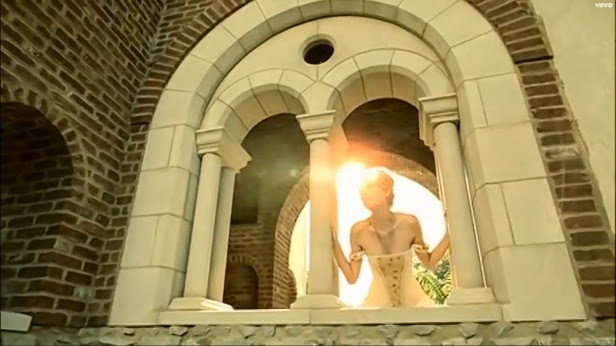
Low Angle- This angle is
used surprisingly a lot throughout the video. While the artist is playing the
role of a vulnerable young girl, these angles present her as strong and
dominant.
Bird’s Eye Angle- Arial shots show the subject from directly above, sometimes from a plane. Here it is used to show the couple dancing.
Camera Movement
The way the camera moves can affect the outcome of a shot. The camera usually moves to follow an artist or actor, but it could alternatively be used to follow another subject or to establish the scene. Different movements include…
Tracking- The camera travels along a track, moving towards, away from or parallel to the subject.
Steadicam- This combines the smoothness of a static camera with the handheld camera’s ability to move and get close to the subject.
Handheld- This can be very effective for point of view and action. It is used to create a jerky, dynamic feel and produces a deeply emotional, almost visceral response. It is fairly rare in music videos.
Pan- The camera pivots along the horizontal axis.
Tilt- The camera pivots up or down, along the vertical axis.
Zoom- The lens moves, not the camera. The speed of a zoom can give a specific effect, for example fast zooms can be disorientating.
Editing Techniques
The editing process
consists of making the video, fitting the visuals to the sound and adding any
effects.
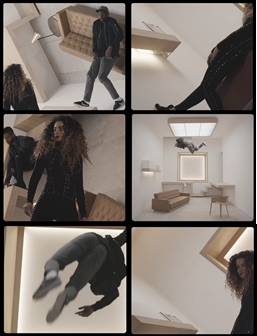
Jump Cut- where two consecutive shots show the same subject
and differ only marginally to create the effect of jumping ahead in time. In
Ella Eyre’s If I Go, multiple jump cuts are used to quickly jump through
several shots in time to the beat. This makes the video very visually exciting,
contrasting with the simple setting.
Split Screen-
the screen is divided into multiple
images, showing that the frame, unlike the human eye, isn’t a continuous view
of the world. In the video for Telephone,
Beyoncé and Lady Gaga use a split screen. This reflects the quirky style of the
video and also gives it a comic effect, stopping the viewer from taking their
malicious actions seriously.
Computer-generated Imagery (CGI) - the use of
computer graphics contributes to the music video. In Ed Sheeran’s Sing, CGI is
used to create a puppet version of the artist.
Diegetic Sound –
this is sound existing in the world
of the video. It is most often found in narrative based music videos as it can
add to the story being told. Beyoncé uses diegetic sound at the beginning of If I Were a Boy to introduce the plot.
Costume
The costumes used in a
music video are often used to either represent the artist in a particular way,
or to define a character.
 Britney
Spears, Hit Me Baby One More Time-
In this video the school uniform,
especially knee high socks and grey cardigan, show that the artists’ character
is a schoolgirl. With the fluffy pink hairbands and pigtails, her youth and
innocence is expressed. However the short skirt and cropped shirt created a
sense of sex appeal. This costume created a lot of controversy as some
suggested that it encouraged children to dress provocatively. The costume
became Spears’ most iconic look.
Britney
Spears, Hit Me Baby One More Time-
In this video the school uniform,
especially knee high socks and grey cardigan, show that the artists’ character
is a schoolgirl. With the fluffy pink hairbands and pigtails, her youth and
innocence is expressed. However the short skirt and cropped shirt created a
sense of sex appeal. This costume created a lot of controversy as some
suggested that it encouraged children to dress provocatively. The costume
became Spears’ most iconic look.
Destiny’s Child, Survivor-
The girl group wear an array of
themed outfits, fitting with the narrative of the video. While the outfits
(these in particular) are very revealing, the animal skin/fur and army print
have strong connotations. This suggests that while the girls are seen merely as
physically attractive, they are in fact much more than that.
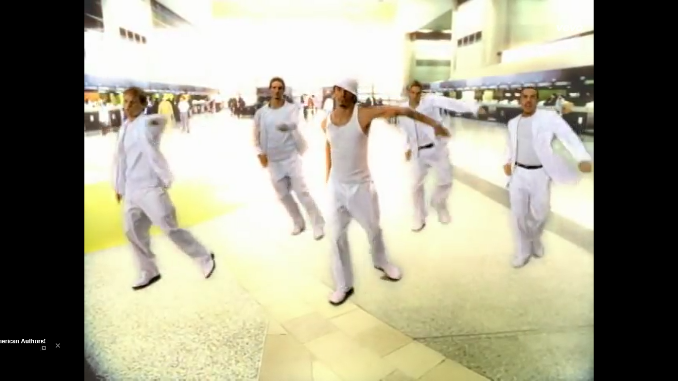 The
Backstreet Boys, I Want it That Way-
Unlike female artists, costumes are
rarely very extravagant for males in music videos. However that doesn’t mean
they can’t be iconic; I Want it That Way has been described as one of the most
iconic music videos of all time, and has been parodied in many others,
including Blink-182’s All the Small Things.
The
Backstreet Boys, I Want it That Way-
Unlike female artists, costumes are
rarely very extravagant for males in music videos. However that doesn’t mean
they can’t be iconic; I Want it That Way has been described as one of the most
iconic music videos of all time, and has been parodied in many others,
including Blink-182’s All the Small Things.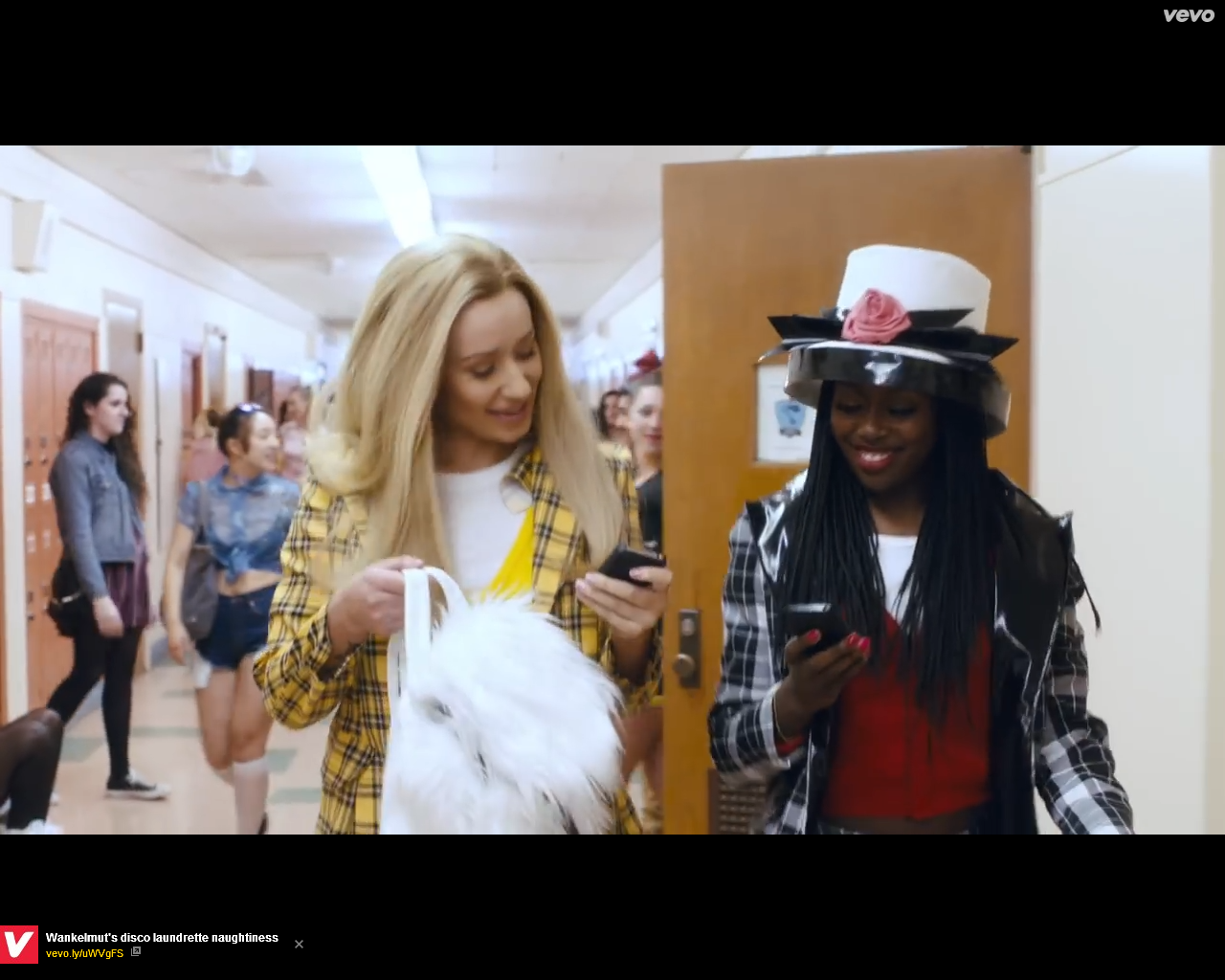
Hair and Make-up
Similar to costumes,
hair and make-up can be used to present an artist or actor in a certain way. 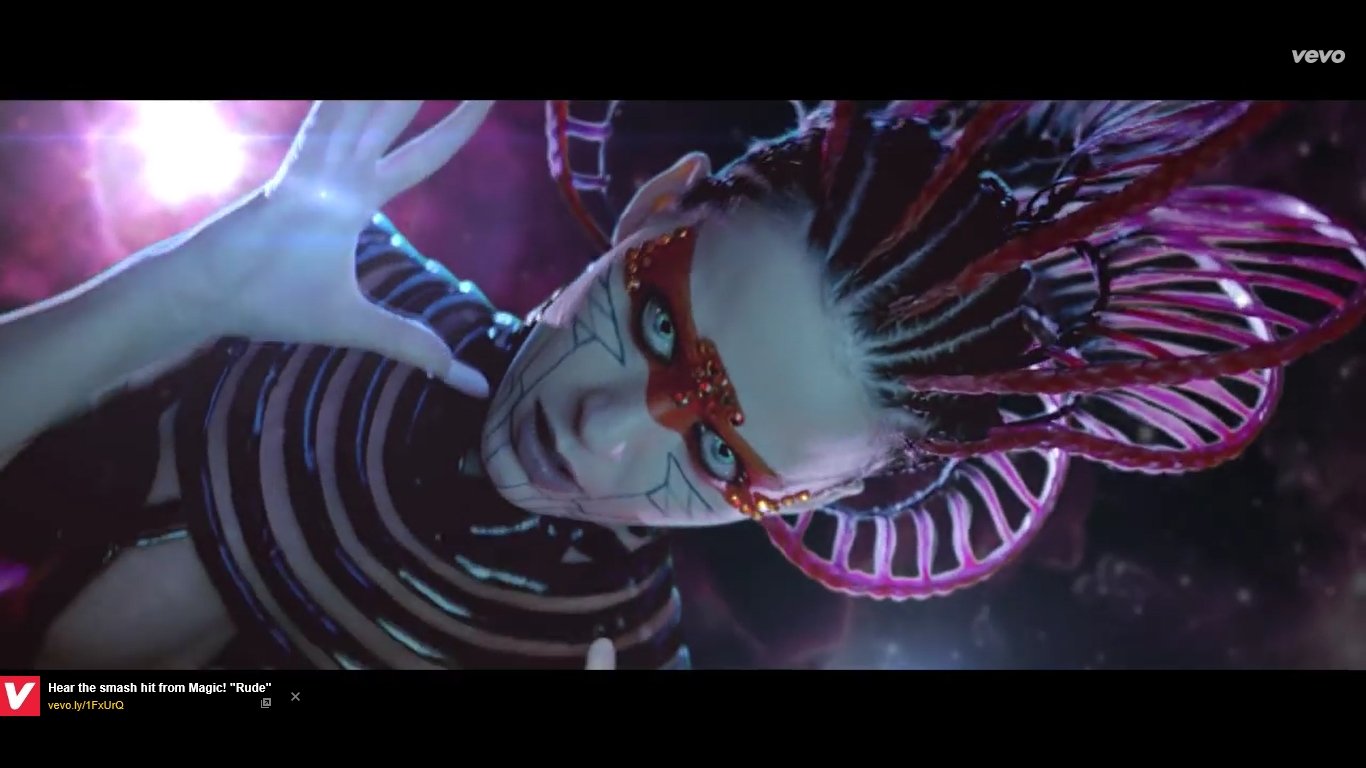
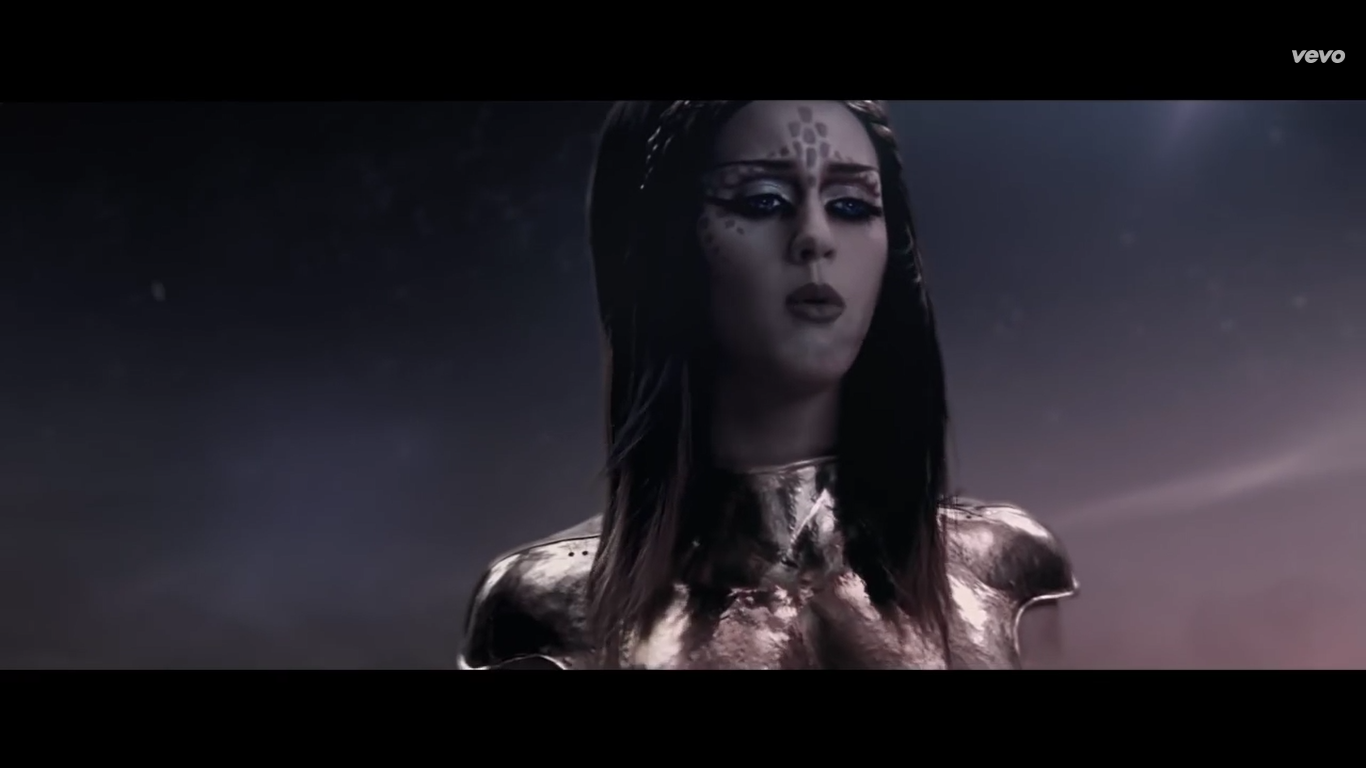 Katy Perry Feat. Kanye West, E.T.- Through the use
of extravagant make-up and hair styling, the artist has been made to look like
an alien. This reflects the lyrics of the song and theme of the video. The
braids at the start of the video and volume towards the end change the
appearance of head shape, and make-up has been used to give the illusion of
scales.
Katy Perry Feat. Kanye West, E.T.- Through the use
of extravagant make-up and hair styling, the artist has been made to look like
an alien. This reflects the lyrics of the song and theme of the video. The
braids at the start of the video and volume towards the end change the
appearance of head shape, and make-up has been used to give the illusion of
scales. The Saturdays, What Are You Waiting For? - In their video the singers wear glamorous make-up, however the natural shades give them an ‘every girl’ look. By not using excessive amounts of cosmetics, women can relate themselves to the band. Despite this, they still look attractive; not only do women want to look like them, their looks also draw in a male audience which their music alone does not. The bronzer and wet/beachy hair give a summery look and amplify the holiday theme.
 Christina
Aguilera, Candyman- Hair and make-up can also be used to set the scene
in a specific era. In this video the artist wears a variety of styles to set it
in the 1940s. For example, this hairstyle with the bandana clearly reflect the wartime
propaganda. This may also express a sense of female emancipation, independence
and strength.
Christina
Aguilera, Candyman- Hair and make-up can also be used to set the scene
in a specific era. In this video the artist wears a variety of styles to set it
in the 1940s. For example, this hairstyle with the bandana clearly reflect the wartime
propaganda. This may also express a sense of female emancipation, independence
and strength. Lighting
The lighting used in a
music is dominantly used to illustrate the time of day, however if often used
to reflect emotions and themes.
 Maroon 5, Maps-
The lighting used in this video is
very significant. The video is generally rather dark, mirroring the sad plot of
the video. The lack of colour in the hospital setting echoes the theme of death.
The scenes in the party are slightly lighter with candles instead of harsh,
artificial lights. This signifies how the party is a happier place than the
hospital, however it is still dark; it is where the artist cheats on his
girlfriend. Lighter still is the scene before the party, showing a happier time
for the couple. The focus of the bright lamp at the end links to the idea of a
person walking towards ‘the light’ after death.
Maroon 5, Maps-
The lighting used in this video is
very significant. The video is generally rather dark, mirroring the sad plot of
the video. The lack of colour in the hospital setting echoes the theme of death.
The scenes in the party are slightly lighter with candles instead of harsh,
artificial lights. This signifies how the party is a happier place than the
hospital, however it is still dark; it is where the artist cheats on his
girlfriend. Lighter still is the scene before the party, showing a happier time
for the couple. The focus of the bright lamp at the end links to the idea of a
person walking towards ‘the light’ after death.
Location
Setting is very important
in music videos as it can establish the plot, along with some themes of the
video.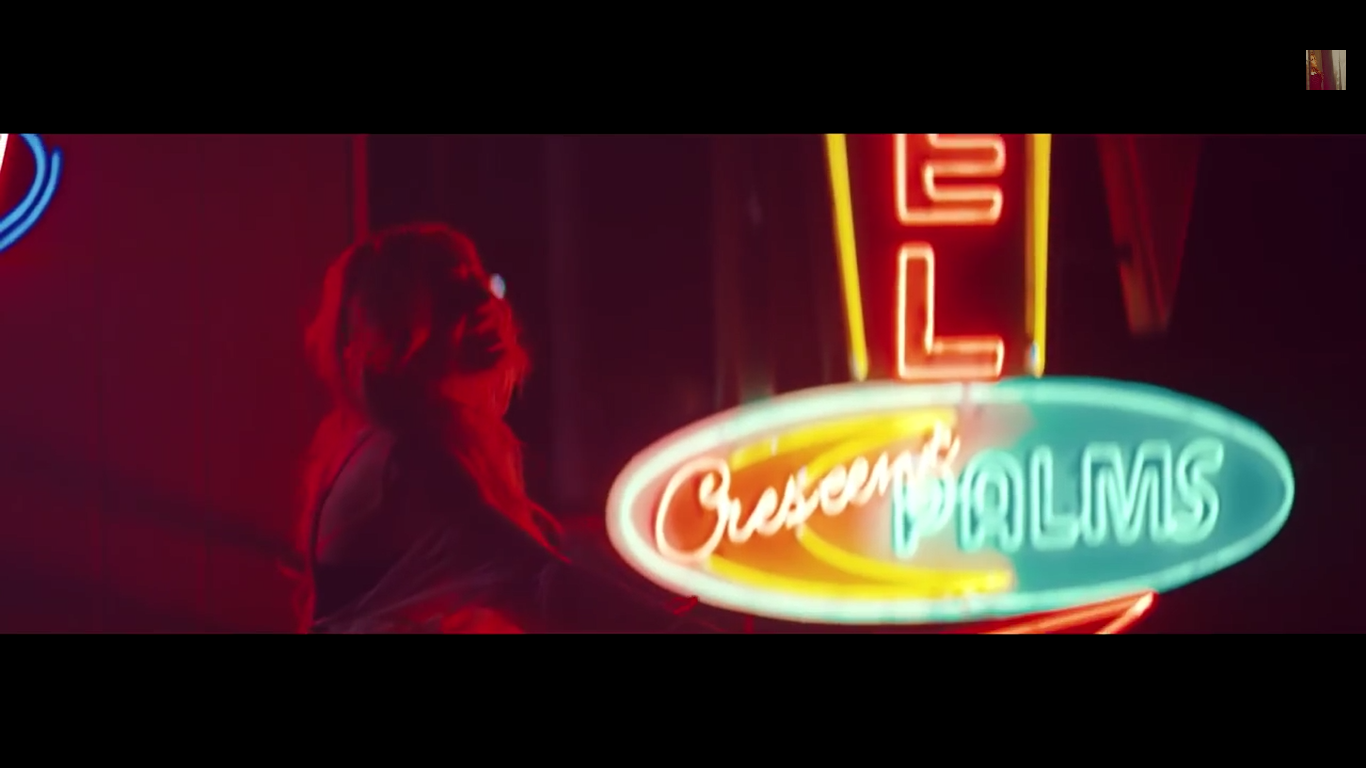 Ella
Henderson, Ghost- This music video is set in a motel. This is used to
emphasise themes of suspicion and infidelity. Furthermore it suggests a sense
of being lost, motels are associated with being financially and/or emotionally insecure.
Ella
Henderson, Ghost- This music video is set in a motel. This is used to
emphasise themes of suspicion and infidelity. Furthermore it suggests a sense
of being lost, motels are associated with being financially and/or emotionally insecure.
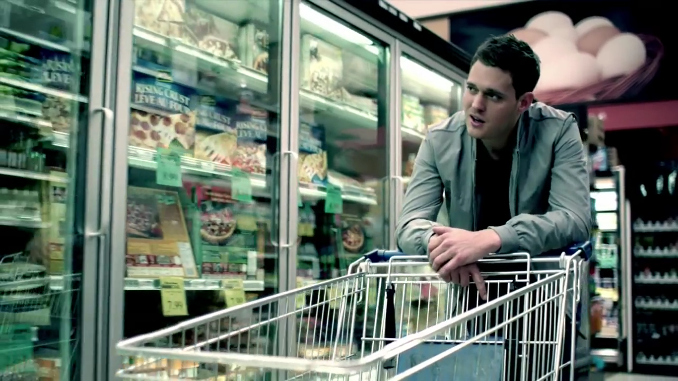 Michael
Bublé, Haven’t Met You Yet- As it is located in a
supermarket, the video expresses how the important moment of the character
meeting his future wife could happen any day, anywhere. It also reflects his
optimistic frame of mind, as he sees the most menial task in the brightest way
possible.
Michael
Bublé, Haven’t Met You Yet- As it is located in a
supermarket, the video expresses how the important moment of the character
meeting his future wife could happen any day, anywhere. It also reflects his
optimistic frame of mind, as he sees the most menial task in the brightest way
possible. Wheatus,
Teenage Dirtbag- Being set in a
school, this videos appeals to be relatable to the viewer who will be in, or
have been in school. However it suggests that the song is primarily targeted at teenagers. The location is very generic, so that audience can easily imagine
themselves as a part of it.
Wheatus,
Teenage Dirtbag- Being set in a
school, this videos appeals to be relatable to the viewer who will be in, or
have been in school. However it suggests that the song is primarily targeted at teenagers. The location is very generic, so that audience can easily imagine
themselves as a part of it.









No comments:
Post a Comment